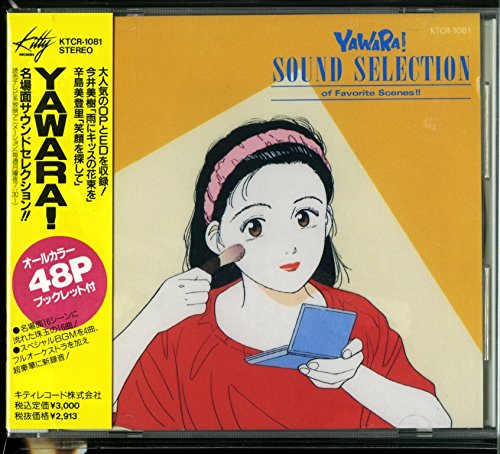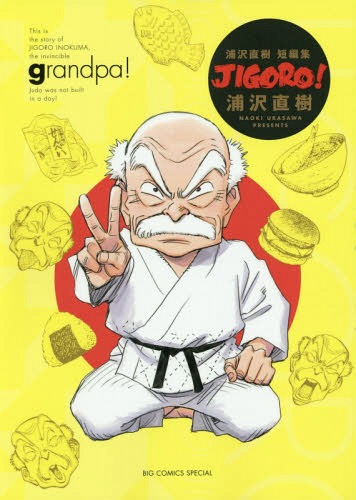
- Episodes : 124
- Genre : Martial Arts, Sports, Action, Slice of Life, Drama, Romance, Comedy
- Airing Date : October 16, 1989 – September 21, 1992
- Studios : Madhouse
Contains Spoilers
Yawara Introduction
Yawara Inokuma may seem like your average high school girl. But try to put your hands on her, you’ll face the wrath of her Judo! Ever since she could walk, she’s been training in the “gentle way.” Despite her talent, she wants to quit Judo and be a normal girl. After stopping a robber with a Judo throw outside of Kichiouji Station (within the West Tokyo area), she catches the attention of Kousaku Matsuda, a sports journalist who takes a picture of her in the act. Seeing that she has the talent to succeed, he wants to bring her to the big leagues. Not only does Matsuda want Yawara to succeed as a Judo competitor, so does her grandfather, Jigoro, one of Japan’s greatest Judo masters.
What We Liked About Yawara
If you want a martial arts oriented anime that’s realistic, Yawara is the anime for you. While the tension can be dramatic, nothing is over-exaggerated or over the top like in some other martial arts anime. Plus, if you’re familiar with the works of Naoki Urasawa, this is a sample of some of his earlier titles. Last, if you’re open minded enough, if you want to watch an anime of its time, Yawara is a perfect example of it.

3. It Realistically Portrays Judo
If you want to know what Judo is all about, Yawara is the perfect anime to watch. It shows how the art functions within its rules and principles. It teaches its audience what the throws are and how they function, how constitutes certain points (such as waza-ari, yuko, and ippon) are rewarded in competition, and how to win (by having the most points, judges decision, or ippon by submission, ippon by a 20 second pin, ippon by throwing the opponent completely flat on their back). It masterfully shows how Judo is used how someone small like Yawara can easily defeat a heavyweight like Mike Tyson.
Plus, some of the names are a nod to Judo such as the Inokuma family name being a homage to Isao Inokuma, a gold medalist in the 1964 Tokyo Olympics, when men’s Judo was introduced as an Olympic event. Jigoro, Yawara’s grandfather, is a homage to the founder of Judo, Jigoro Kano. Plus, the series does have some cameos of real life Judo gold medalists, Yasuhiro Yamashita and Hitoshi Saito. Last, the kanji of Yawara’s (柔)name is the same kanji of the “Ju” in Judo, meaning “gentle.”
2. Gives You A Realistic Tokyo
In Yawara, you get a very realistic portrayal of Tokyo, most notably the Shibuya district. Even if Yawara is nearly 30 years old, much of what you see in the Shibuya of this anime, can still be seen today such as the crosswalk outside of the Hachikou Exit of Shibuya Station, the Hachiko Statue, and the 109 Shopping Mall.
1. Makes You Appreciate What We Have
This kind of transitions into why you should skip this series, but when you watch Yawara, the way many of these situations can be solved simply by having cell phones can all be resolved in a matter of seconds. Every time someone can’t make it to a match, or you don’t know if they can’t show up, it could have all be settled with a cell phone or tablet. As you view Yawara, it just makes you appreciate what we have today.
3. It Reminds You of A Time Before Cell Phones
When you watch this anime, you really have to keep in mind that Yawara was broadcasted a decade before cell phones were mainstream. If you were to remake this anime now, just about a majority of the problems presented in this anime can instantly be solved thanks to cell phones. As opposed to cell phones, everyone is using phone cards at pay phones, and when they try to call someone, nobody’s home and they’re really stuck in traffic. To some younger viewers, it may get annoying.
2. Repetitive
In addition to the repetitive situations the characters get themselves into, Yawara’s motivation is a repetitive theme throughout this series. If anything, it should have been solved either half-way or two-thirds into it. Instead, Yawara questions her motivations with Judo throughout most of the series. While the series does a good job of presenting why, the reasons are repetitive, too. But at the same time, Yawara reminds us that sometimes motivation needs to be external as opposed to internal.
2. Jigoro=LaVar Ball
If you thought LaVar Ball getting famous off of his sons was bad enough, Jigoro takes it to a whole new level. Every time Yawara wins, he ends up making her victories his own, and likes to put himself at the center of attention just like LaVar (thankfully he doesn’t sell an expensive shoe, but copies of his book). Every time there’s a press conference, he likes to talk about how he defeated lions, tigers, and bears in his youth and always elevates his official black belt ranking. Yes, he trained Yawara, but it was her putting her own body on the line every time she chose to compete. If Twitter existed then, he’d be in competition with Donald Trump over who has the most ridiculous tweets. So, maybe having no cell phones was a good idea after all.
Final Thoughts

If you’re a fan of Naoki Urasawa, we promise you’re going to enjoy this anime. While it’s not as dark as other famous works such as Monster or 20th Century Boys, Yawara is something appropriately light-hearted and fun. It’s not simply an anime about Judo, but about fair play, friendship, hard work, and family. So if you want to educate yourself about Judo and culture, then check out Yawara!

